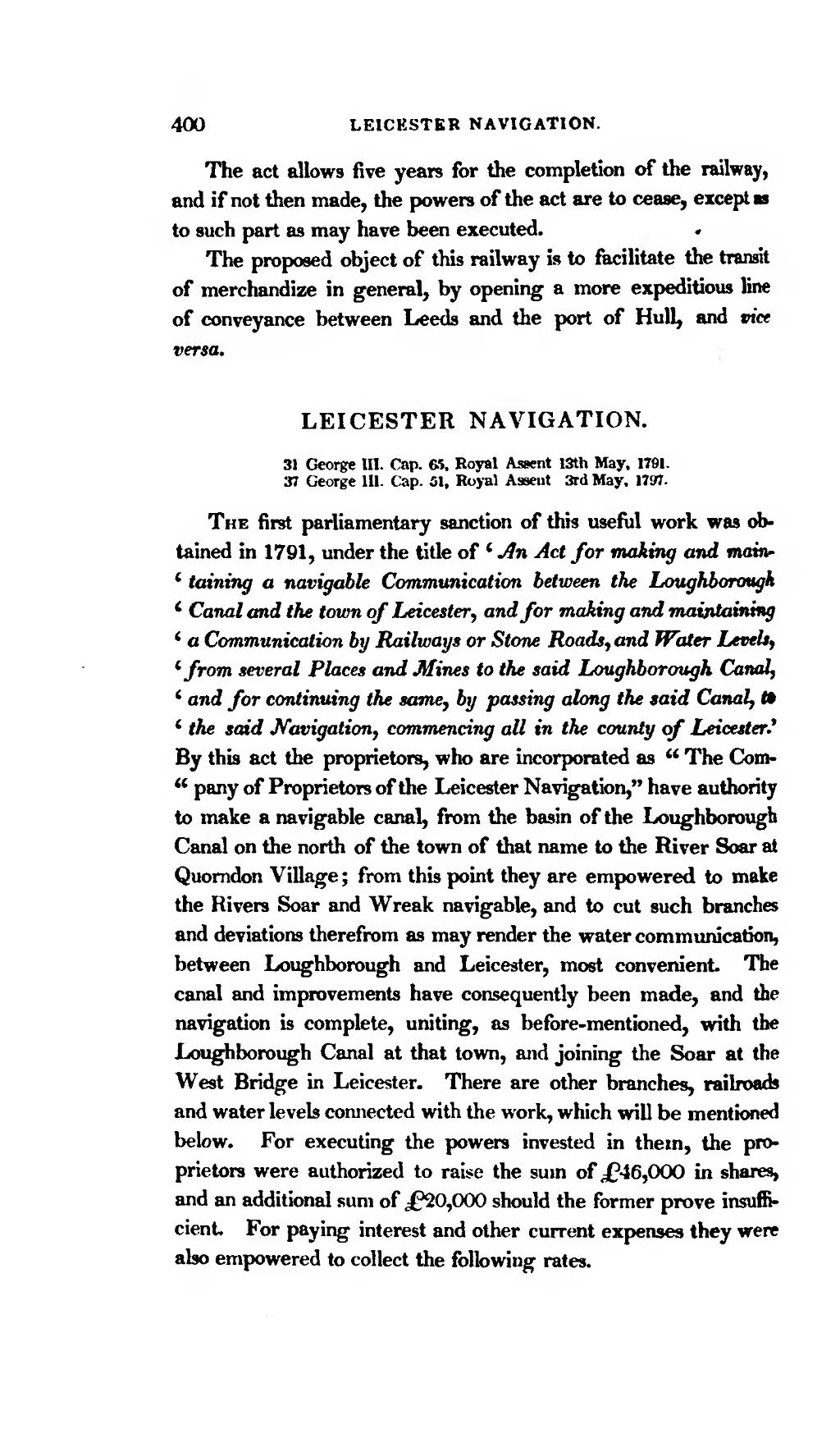The act allows five years for the completion of the railway, and if not then made, the powers of the act are to cease, except as to such part as may have been executed.
The proposed object of this railway is to facilitate the transit of merchandize in general, by opening a more expeditious line of conveyance between Leeds and the port of Hull, and vice versa.
LEICESTER NAVIGATION.
31 George III. Cap. 65, Royal Assent 13th May, 1791.
37 George III. Cap. 51, Royal Assent 3rd May, 1797.
THE first parliamentary sanction of this useful work was obtained in 1791, under tile title of 'An Act for making and maintaining a navigable Communication between the Loughborough Canal and the town of Leicester, and for making and maintaining a Communication by Railways or Stone Roads, and Water Levels, from several Places and Mines to the said Loughborough Canal, and for continuing the same, by passing along the said Canal, to the said Navigation, commencing all in the county of Leicester.' By this act the proprietors, who are incorporated as "The Company of Proprietors of the Leicester Navigation," have authority to make a navigable canal, from the basin of the Loughborough Canal on the north of the town of that name to the River Soar at Quorndon Village; from this point they are empowered to make the Rivers Soar and Wreak navigable, and to cut such branches and deviations therefrom as may render the water communication, between Loughborough and Leicester, most convenient. The canal and improvements have consequently been made, and the navigation is complete, uniting, as before-mentioned, with the Loughborough Canal at that town, and joining the Soar at the West Bridge in Leicester. There are other branches, railroads and water levels connected with the work, which will be mentioned below. For executing the powers invested in them, the proprietors were authorized to raise the sum of £46,000 in shares, and an additional sum of £20,000 should the former prove insufficient. For paying interest and other current expenses they were also empowered to collect the following rates.
